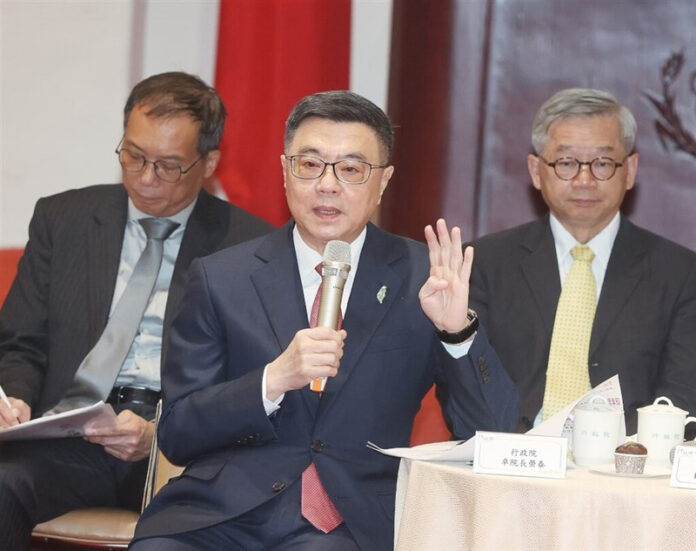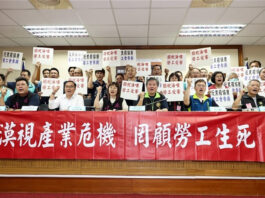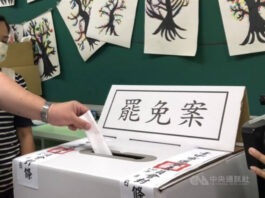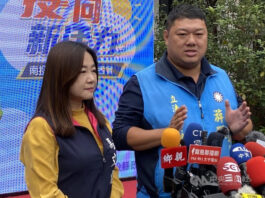As Taiwan approaches the first anniversary of President Lai Ching-te’s administration on May 20, Premier Cho Jung-tai (卓榮泰) held a detailed press briefing on Friday to highlight the government’s accomplishments and unveil a bold forward-looking strategy, labeled the “1+7” policy blueprint.
The event, held at the Executive Yuan’s Assembly Hall, was not just a retrospective. It also marked the Cabinet’s firm stance on pursuing progressive, stable, and secure development under a new strategic framework.
🔍 Recap of Key Government Achievements
Cho emphasized that the Cabinet had made “substantive progress” across multiple domains:
- Hualien Earthquake Reconstruction: Timely disaster response and rebuilding efforts post-earthquake have garnered positive feedback. Authorities have mobilized emergency housing, infrastructure assessments, and long-term restoration projects.
- Crackdown on Fraud: Taiwan has seen a rise in fraud schemes. The Cabinet rolled out tougher enforcement through inter-agency cooperation and modern digital forensics, with significant arrests and frozen assets linked to fraud rings.
- Pedestrian Safety Improvements: Taiwan has been under scrutiny for poor pedestrian infrastructure. New measures include stricter traffic law enforcement, redesigned crosswalks, and expanded pedestrian zones.
- Economic Growth: Taiwan’s economy has maintained resilience, driven by strong exports, particularly in the semiconductor sector, and robust domestic consumption. GDP growth remains steady despite global uncertainties.
🚀 The “1+7” Policy Plan Explained
Premier Cho introduced the new development roadmap:
🔹 The “1”: Establishing the Ministry of Sports
- Launch Date: September 9, 2025
- Purpose: Centralize sports governance, nurture elite athletes, improve school sports programs, and attract international sporting events.
- Background: This comes amid growing calls for a better-managed sports sector following controversies over mismanagement of athlete welfare and facilities.
🔹 The “7” Strategic Focus Areas:
- Balanced Development in Six Industrial & Living Areas:
- Goal: Avoid over-concentration in the north, distribute resources and infrastructure equitably across regions.
- Projects include transportation upgrades, industrial zone renewal, and urban-rural integration.
- Asia Asset Management Center:
- Position Taiwan as a key player in asset management within Asia, tapping into financial technology, offshore banking, and regulatory reforms to attract global investors.
- NT$1 Trillion National Investment Plan (2025-2028):
- Large-scale investment targeting green energy, infrastructure, digital economy, and resilient supply chains.
- Seen as a strategic move to make Taiwan a post-COVID innovation hub.
- Implementation of 17 National Security Measures:
- Includes cybersecurity, defense innovation, food security, and disaster readiness.
- Aligns with President Lai’s emphasis on resilience in the face of geopolitical tensions with China.
- Advanced Technology Development:
- Expansion of Taiwan’s global leadership in semiconductors, UAVs, and smart robotics.
- Heavy investment in R&D hubs and AI integration across industries.
- Public Housing Reform for Families:
- Addressing housing affordability, particularly for young couples with children.
- Measures include rent subsidies, expanded social housing, and land-use flexibility.
- Long-Term Care 3.0:
- Upgrade of Taiwan’s elderly care system with digital health integration, home-based services, and care-worker training.
- Expected to relieve pressure from aging population trends.
🧭 Strategic Outlook
Premier Cho described the Cabinet as a “pilot steering Taiwan to safe harbor.” His metaphor reflected the need for stability amid legislative friction, cross-strait tensions, and economic transformations.
He also emphasized that while the Cabinet has requested reconsideration of legislative amendments, this is not political obstruction but rather a constitutional safeguard.
“Democracy is not about rushing decisions. It’s about making the right ones,” he said.
🕊️ Call for Unity
Cho urged collaboration with the opposition parties, stressing that meaningful governance requires shared responsibility across the political spectrum. The goal is not only to maintain public trust but to build a resilient, equitable, and forward-thinking society.
🧠 Original Insights & Commentary
This roadmap is a bold mix of ambition and pragmatism. The “1+7” plan signals an important pivot away from reactive policymaking to long-term institutional transformation. The inclusion of sectors like asset management and UAVs show Taiwan’s ambition to be a regional tech-finance hub.
Furthermore, the focus on public housing and care programs reflects growing socio-economic consciousness. If implemented effectively, this plan could recalibrate Taiwan’s domestic policy landscape and strengthen its international competitiveness.
❓ FAQs
What is the “1+7” policy announced by Premier Cho?
It refers to the creation of one new ministry (Ministry of Sports) and seven strategic focus areas including national investment, balanced regional development, and long-term care reforms.
Why is the Ministry of Sports being established?
To address long-standing issues in sports governance, improve infrastructure, support athletes, and promote Taiwan internationally through sports diplomacy.
What is the NT$1 trillion national investment plan?
A comprehensive development initiative from 2025 to 2028 aimed at infrastructure, green energy, the digital economy, and strategic industries.
How does the Cabinet plan to support families and youth?
Through public housing reforms, rental subsidies, social housing expansion, and support for young couples with children.
What are the national security measures referenced?
A set of 17 policy directives by President Lai covering cybersecurity, disaster resilience, and strategic autonomy, especially amid geopolitical tension.



